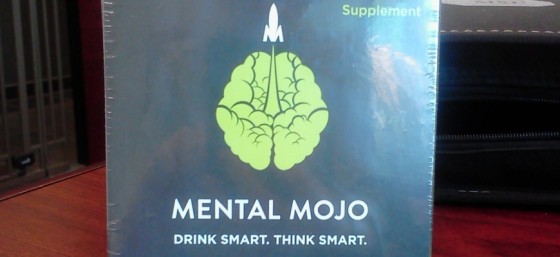
Content Marketing World (CMWorld) is one of my favorite events every year. They have the best of the best speaking about what’s working with content marketing.
Like every year when I have the privilege of being a speaker, I’m required to sign a contract. They recently sent me a link to the speaker contract landing page where I signed with my electronic signature. I signed the contract as it was written, but it inspired me to create a revised version. Some of the provisions I added were meant to be humorous, and others were added to fill gaps in the contract’s verbiage. I sent the revised contract to CMWorld, and they thought it was funny.
Re-writing my friends’ real contracts has become one of my new hobbies. I keep these documents in a folder on my computer entitled, “Let’s Fuck Up Contracts.”
Below are some of the provisions in the original CMWorld contract I signed followed by how I revised them.
It’s ironic that I mostly revised it in ways that would benefit the event. Historically, when I’ve revised a contract I’ve been asked to sign, I do so in ways that only benefit me – like when I revised the liability waiver for a race so I could sue the organizers if they ran me into oncoming traffic or something. As a lawyer, I draft contracts based on what’s in my client’s best interests, which again, is not this situation.
Compensation
In CMWorld’s Original Contract:
For my participation, I will be provided:
- (1) Pass to the main event including admission to all main conference sessions, networking functions, and workshops.
- (1) Complimentary access to on demand videos for up to one year following the event.
How I Revised It:
For my participation, I will be provided:
- One (1) Main Conference Pass allowing access to all sessions at the Event including all networking functions and conference workshops,
- One (1) Complimentary Pass to all sessions on demand for twelve (12) months following the Event,
- Copious amounts of hugs and high fives from the Event team, as long as I’m not creepy about it,
- First dibs to pet the dogs at the Yappy Hour event where there will be no less than four (4) rescue dogs; and
- Access to the Event speaker lounge that will be stocked with hot and cold caffeinated beverages; ice cold sparkling water with lime; a selection or orange-colored candies, including, but not limited to M&Ms, Reese’s Pieces, Skittles, Starburst, and Mike & Ikes, each in a separate container (because mixing them is gross); and at least thirty (30) power outlets.
Power outlets are in high demand in the speaker lounge. Also, CMWorld has not said whether or not they will have a Yappy Hour at this year’s event. And just so there’s no confusion, I = me, Event = CMWorld, and Informa is the company that owns the Event.

No Selling From the Stage
In CMWorld’s Original Contract:
The Event is an educational event, not a sales or marketing platform. Informa is retaining me to provide an objective presentation that meets the educational needs of the Event attendees. Informa may revoke my speaker invitation at any time if in its sole judgement that is in the best interests of the Event.
How I Revised It:
I grant to Informa a worldwide, non-exclusive, royalty-free, perpetual license to copy, distribute, display, and make derivative works using all materials and recordings of and related to the speaking engagement, in whole or in part, in any Informa anthology, compilation, or educational publication of materials associated with the Event, including without limitation any format, including those that haven’t been invented yet. I acknowledge and agree that this license is assignable and sublicensable without any limitations.
I also added in the following: Moreover, if Informa is accused of wrongdoing for using any rights licensed to it by me herein, I, or my employer where possible, will indemnify and reimburse all its legal costs, including associated damages, for resolving the matter.

Dispute Resolution
In CMWorld’s Original Contract:
This Agreement and Release is governed by California law. Choice of law rules do not apply, regardless of jurisdiction.
How I Revised It:
Even though Informa is a UK company and the Event is in Ohio, I acknowledge and agree that this Agreement and Release is governed by California law and all disputes regarding this contract will be resolved in a court located in Los Angeles County, California. Choice of law rules do not apply, regardless of jurisdiction. Furthermore, I acknowledge and agree that, in a dispute, the non-prevailing party will be responsible for the prevailing party’s attorneys’ fees and cost.
Other Terms I Added
Entire Agreement: This contract contains the entire agreement between myself and Informa regarding my participation as a speaker at the Event, regardless of any discussions to date or in the future. Any modification must be in writing and signed by both parties.
Force Majeure: I acknowledge and agree that neither Informa nor the Event, their employees, contractors, directors, affiliates, or lawyers (because the lawyers always cover their asses as well as their clients’) shall not be liable for damages or any inability to perform under this agreement, which is directly, or indirectly, caused by circumstances beyond their control, including, but not limited to, natural disasters, inclement weather, acts of god, acts by other deities, illness, plague, fires, alien invasion or abduction, floods, riots, strikes, government orders or recommendations, if someone releases a kraken, or any other justifiable conditions outside of Informa’s or the Event’s control.
I’d expect every event to have a force majeure provision, especially with the COVID pandemic. This is particularly true if the event is at a third-party venue where the event would likely need to be cancelled or rescheduled if the location were no longer available due to a catastrophic event like a fire or earthquake.

Learn More About Contracts – for Free!
Earlier this year, I created a mini course for The Tilt called What Content Creators Need to Know Now to Avoid Legal Trouble. It’s a quick 20-minute overview of what content entrepreneurs need to understand about contracts, including how to read a contract and suggested terms to include in your own contract templates.
Stay Connected
If you’re interested in reading insider information about my experiences as an entrepreneur and special features you won’t find on any of my blogs, please subscribe to Ruth and Consequences.
To my fellow CMWorld speakers: If we have containers of different types of orange-colored candies at this year’s event, you’re welcome.


